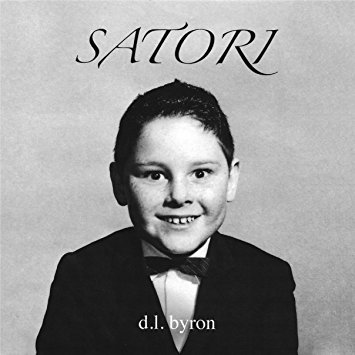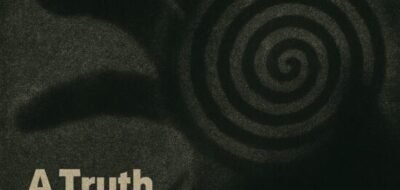In his new song “No. 1 God,” which serves as the first track on the brand new EP Satori by D.L. Byron, the complacent silence of a generation of yes men and sycophants is broken with an explosive, lumbering riff that rockets us down a wide open country road, nothing in our way to stop us. We’re moving at a million miles a minute, but the landscape we’re passing looks like it’s in slow motion, carefully illustrated by the articulate singing of Byron.
It’s not that he’s jaded, he’s just sick of the placating and patronizing way that we’re being boxed in intellectually as a collective people. The absurd and nonsensical are ruling supreme, and somehow some of us are still able to be present and aware enough to know that we’re in bondage. Mind-bending triplets of distortion-drenched notes transition us into “Rehearsing for the Future,” a Nick Cave-style rock ballad that features lyrics that read like an irreverent diary entry instead of a pop song (and believe me, in this format, that’s a good thing).
The hindsight narrative behind “Rehearsing for the Future” is hardly self-indulgent; on the contrary, the retrospection comes off like a punk rock-influenced exclamation of individuality and self-reliant independence. Byron doesn’t sound like a rock star who is past his prime or a singer/songwriter who is stuck in the past, but he certainly possesses the self-awareness to still produce humble material that remains steeped in the foundations that made him such an exciting listen to begin with.
My favorite track on the record, “All Fall Down,” is a perfect example of his humility as an artist, featuring lyrics that highlight his sarcasm but fall short of coming off as pretentious. Byron is the kind of artist who, much like John Lennon, wants us to have a couple of nuggets to play with long after we’re done listening to his material. “All Fall Down” poses some interesting questions about our own self-image and the mortality of social standing (which is particularly relevant in our present-day “look at me” culture that is emphasized by the advent of social media). Kings and queens, the bishops who uphold the ancient ways of doing things, the common man and the blue blood, they all crumble under the same pressures that we self-enforce. Byron is essentially asking us to think about where we stand in the grander scheme of things, and it’s to our benefit as listeners that he conveys that message through such a catchy, memorable beat.
The haunting and rhythmic “Everywhere I Go” brings Satori to a close and is probably the most emotionally charged track on the record. The bright guitars aren’t quite R.E.M., but there’s still a lot of D.L. Byron jangle rock lineage present in the song, and the polished production allows us to really appreciate some of the smaller details in its swirling, almost cerebral arrangement. It actually made me want to go back through Byron’s previous work to study his compositional attack a little closer, and when I did so, I was able to really hear just how much he has evolved over the years.
If this is a taste of what we can expect as his career continues to develop, then there’s no question that this singer/songwriter has a lot left to share with music enthusiasts.
-review by Thomas Patton, III









